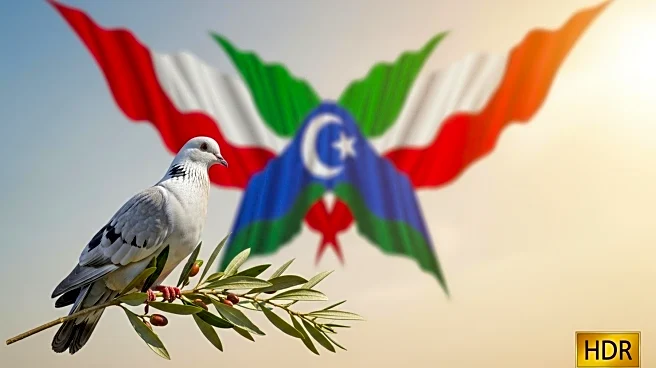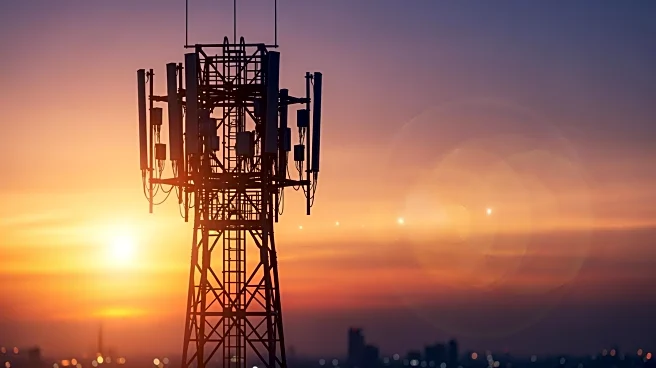What is the story about?
What's Happening?
South Korea's President Lee Jae Myung has requested President Donald Trump to act as a 'peacemaker' to facilitate dialogue with North Korea, aiming to reduce military tensions on the Korean Peninsula. This request comes after South Korea's military fired warning shots at a North Korean merchant ship that crossed the disputed western sea boundary. President Trump has expressed his willingness to engage with North Korea again. The request is part of South Korea's broader strategy to establish a military hotline and build confidence between the two Koreas. Historical context includes previous summits between Trump and North Korean leader Kim Jong Un, which failed to resolve issues related to U.S.-led sanctions and nuclear disarmament.
Why It's Important?
The request for President Trump to mediate is significant as it highlights the ongoing volatility in the Korean Peninsula and the potential for U.S. involvement in de-escalating tensions. The situation affects regional stability and has implications for international relations, particularly involving China and the U.S. The potential for renewed dialogue could impact global security, given North Korea's nuclear capabilities. South Korea's approach reflects a shift in diplomatic strategy, emphasizing dialogue over confrontation, which could lead to changes in military and foreign policy dynamics in the region.
What's Next?
President Trump is expected to visit South Korea next month for the Asia-Pacific Economic Cooperation summit, where there is speculation he might meet with Kim Jong Un. This visit could serve as a platform for further diplomatic engagement. Additionally, South Korea aims to establish a military hotline with North Korea to prevent future incidents and reduce tensions. The outcome of these diplomatic efforts could influence future U.S. foreign policy and its role in Northeast Asia.
Beyond the Headlines
The request for President Trump to mediate underscores the complex geopolitical landscape in Northeast Asia, where historical tensions and modern political dynamics intersect. The involvement of major powers like the U.S. and China adds layers of complexity to the situation. The potential for dialogue also raises questions about the future of nuclear disarmament and the role of international diplomacy in resolving longstanding conflicts.















